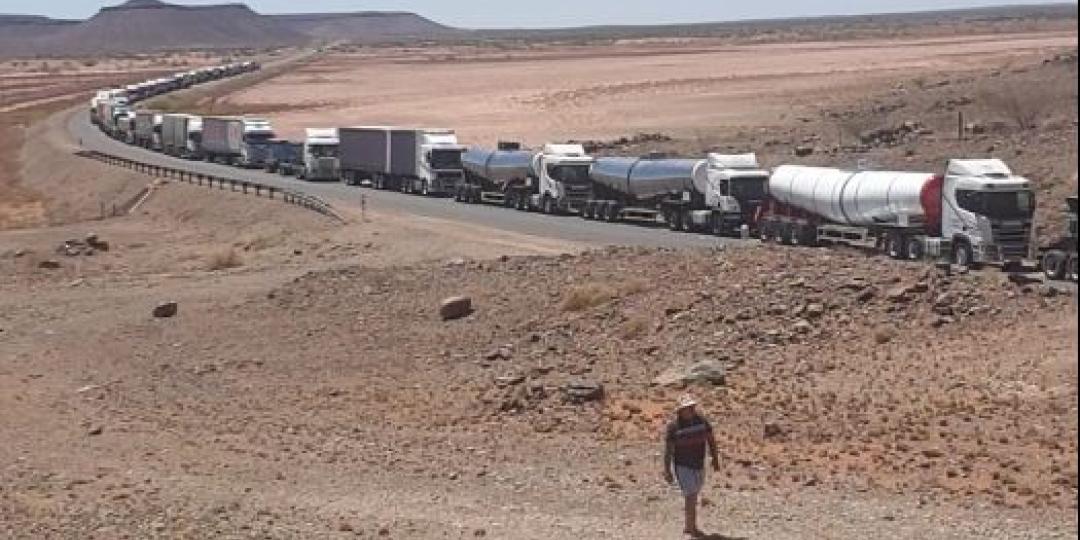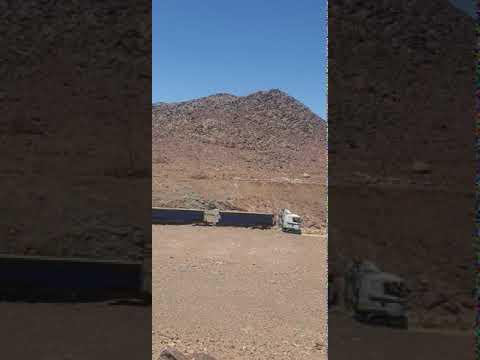Road freight passing through South Africa’s 24-hour border post west of Upington has been normalised following intervention by the Federation of East and Southern African Road Transport Associations (Fesarta) and the SA Revenue Service (Sars).
Queues stretching for kilometres at the otherwise uncongested crossing started building up last Wednesday after the Department of Home Affairs (DHA) bizarrely decided to close the border between midnight and 4am.
According to Fesarta chief executive Mike Fitzmaurice, the decision was taken in keeping with Covid-19 curfew hours, yet only applied to South Africa’s transits into Namibia.
The restriction was also implemented without apparent forethought by the DHA about what it would mean for transporters avoiding South Africa’s Skilpadshek border west of Zeerust on the Trans-Kalahari Corridor because of rigid coronavirus protocols.
By Friday, the increase in truck traffic bypassing Botswana, along with limited operating time at Nakop, had resulted in a line of trucks on the N10 curling for kilometres through the barren countryside of the Northern Cape.
Thankfully Sars’ intervention reversed the DHA’s decision, enabling clearing of the queue and underpinning the potential of public-private collaboration.
“We got contacted by our members in Namibia who said they run 24-hour courier services with just-in-time delivery timelines for certain things like pharmaceuticals and spares for mining equipment,” Fitzmaurice said.
“We subsequently made a submission to Sars that it was affecting trade and we had customers who could not deliver their service to their clients.”
He added that just hours after speaking to Sars, things started to change.
“Over the weekend transporters confirmed that things were getting to normal. By now the queue should be clear.”
Last week’s Nakop congestion once again illustrates how the DHA often takes decisions seemingly on a whim without prior industry consultation.
Questions were also raised about why the department had only instituted the operational time limitation at Nakop and Vioolsdrift border post further west, and whether the DHA had bothered to communicate with its staff at Skilpadshek about the possible implications of traffic avoiding Botswana.
“It simply didn’t make any sense,” Fitzmaurice said.
“Why close between curfew hours but keep the staff at the port. What were they doing for the four hours that they weren’t working?”
WATCH: Trucks queued for kilometres at South Africa’s Nakop border into Namibia after the Department of Home Affairs implemented a Cover-related operational time restriction.














